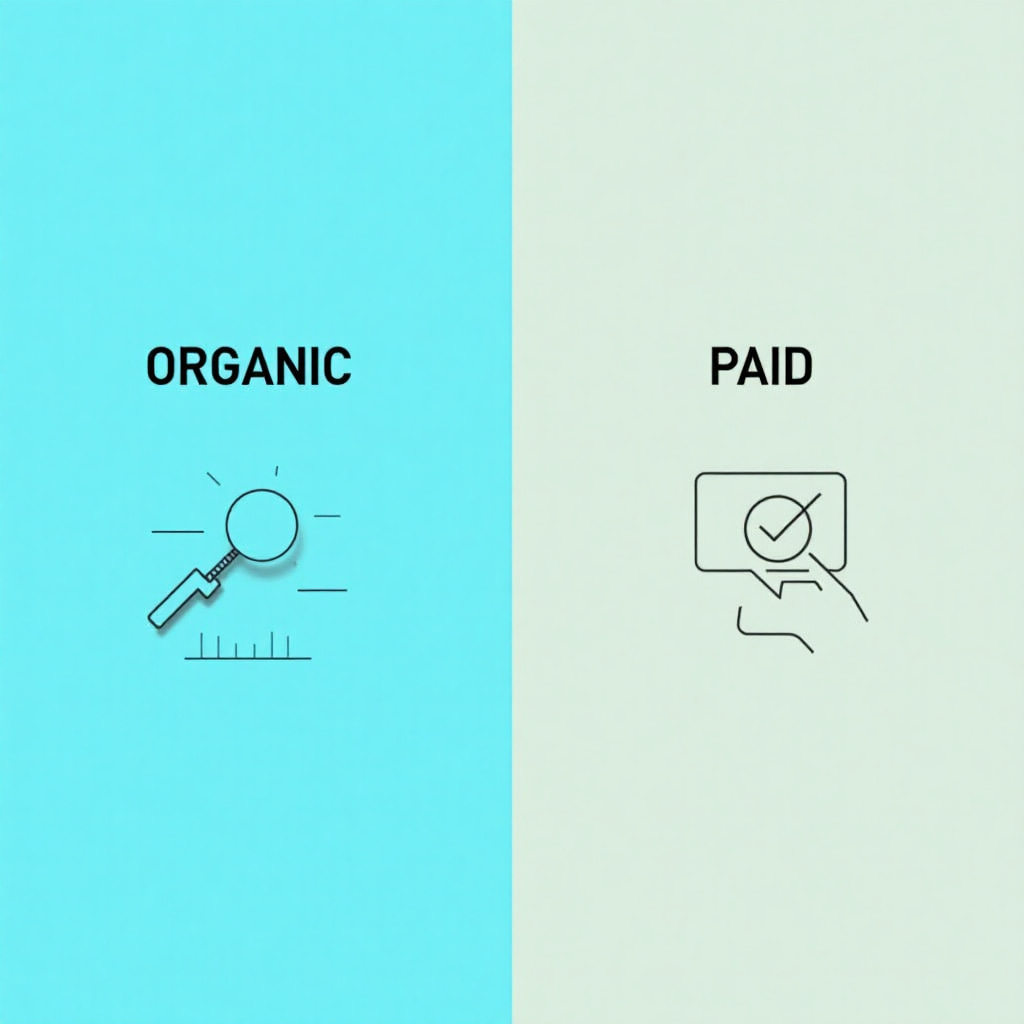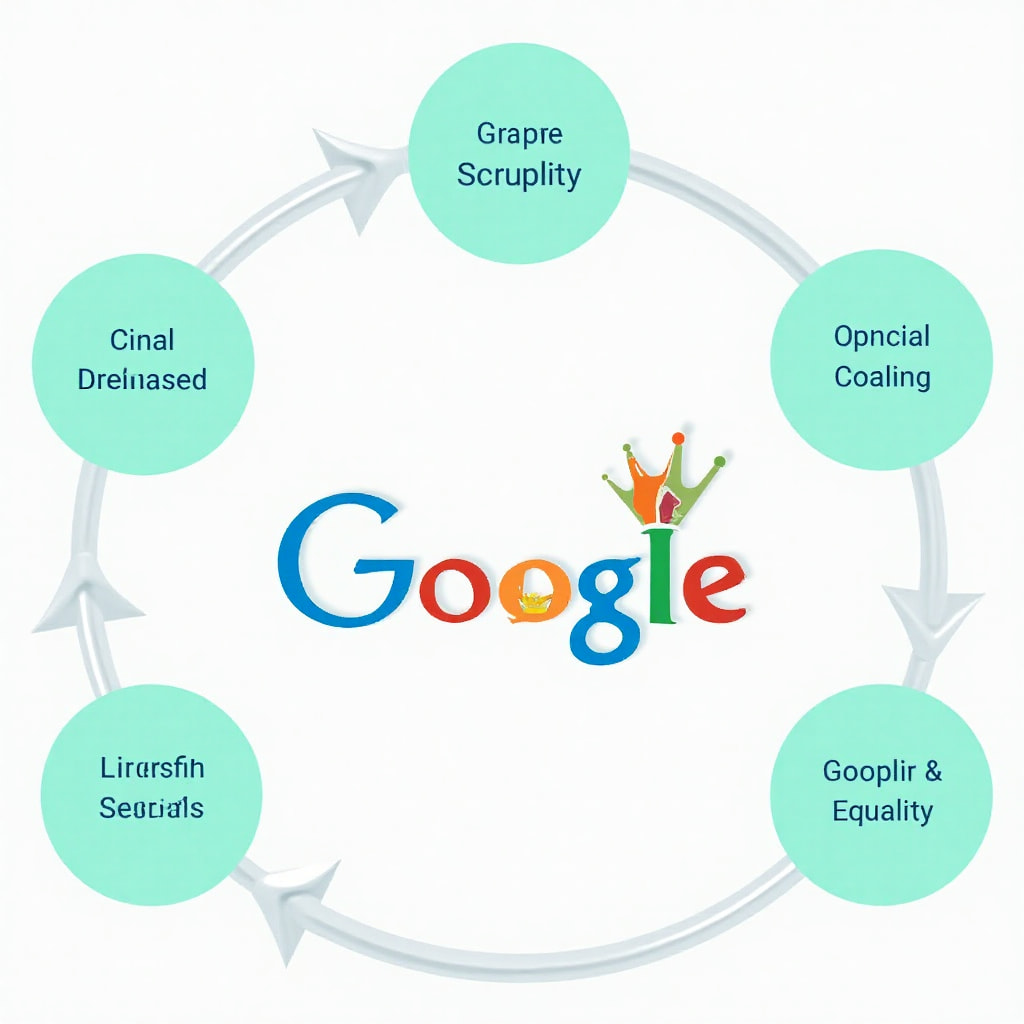Organic search vs paid search statistics

Understanding the difference between organic and paid search is essential for any business navigating the digital landscape. Organic search results arise naturally through search engine optimization, while paid search ads are paid placements. Knowing the difference between organic and paid search results helps you allocate your marketing budget effectively. This blog covers the distinctions, benefits, and strategic decisions behind each, guiding you to make intelligent choices that grow your business online.
Key Difference Between Organic and Paid Search
Search engines like Google offer two primary ways to reach users: organic search (SEO-driven listings) and paid search (advertisements). Understanding the difference between organic and paid search is essential for marketers aiming to balance long-term brand visibility with fast, targeted traffic. In this article, we’ll explore the core differences between these two strategies and how to choose the right mix for your business.
1. Cost Structure
Organic search traffic is earned through consistent content creation, SEO optimization, and link-building, without direct placement charges. Paid search on the other hand, operates via a bidding model: you pay each time someone clicks your ad known as PPC (pay-per-click). While organic incurs upfront time and investment, paid search delivers immediate visibility, albeit at a direct cost per click.
2. Speed and Timing
Organic rankings take time, often months, to build trust and authority. There’s no guaranteed timeline. Paid search offers instant results; ads can go live immediately after setting up campaigns, delivering immediate traffic. If speed is essential, the difference between paid search and organic search becomes stark: one is short-term, the other a long-term investment.
3. Credibility and Trust
Organic listings are often perceived as more credible, because users trust ‘unpaid’ results. Positioned below ads, they earn clicks based on relevance and trustworthiness. Paid results, marked as ads, may garner clicks but often face trust barriers. Users typically identify organic results as more genuine, making the difference between organic and paid search results crucial for brand perception.
4. Targeting and Control
Paid search offers granular targeting, by keywords, demographics, location, time of day, and device, giving advertisers significant control. Organic search optimization focuses on relevance, content quality, and signal building, which influences a broader audience over time but with less precision.
5. Scalability
Paid search scales easily: extra budget means more visibility. Organic growth requires consistent work, publishing content, growing backlinks, and refining SEO, but once established, it sustains itself. The difference between organic and paid search here is one of speed vs. sustainability: paid adapts fast, organic builds long term.
6. Measurement and ROI
Paid search offers immediate metrics: clicks, impressions, conversions, and ROI. It’s easier to justify spend per campaign. Organic search ROI takes longer to track, often requiring holistic measures like organic traffic growth, keyword rankings, and revenue uplift. Attribution can be more complex.
7. Hemming and Longevity
Organic results can remain visible for months or years if appropriately maintained. Paid search stops delivering as soon as the budget ends. The difference between paid search and organic search here highlights longevity: organic offers lasting value; paid requires ongoing investment.
What is Organic Search and Why It Matters for UAE Brands
Organic search refers to non-paid listings that appear in search engine results based on relevance, quality, and authority. These rankings are determined by search engine algorithms assessing hundreds of factors, keyword usage, content structure, backlinks, user experience, and more. While building organic search visibility takes time and expertise, it yields sustainable, cost-effective traffic. Content published and optimized correctly can continue attracting users for years. Organic search is also key to brand credibility that users tend to trust it more than ads.
A comprehensive organic strategy employs on‑page SEO, content marketing, technical optimization, and link building. To succeed, businesses often engage a professional search engine optimization agency in Dubai or collaborate with a digital marketing agency in Dubai. Although slower upfront, organic search delivers compounding returns and builds a lasting digital asset that supports your bottom line.
Also read: Traditional CRM vs Social CRM
What is Paid Search in the Context of UAE Digital Campaigns?
Paid search delivers immediate visibility through ads that appear in search engine results pages (SERPs). Advertisers use platforms like Google Ads to bid on keywords, pay-per-click (PPC), and receive targeted impressions. Paid campaigns allow granular control over ad copy, budget, bidding, and audience targeting. While you pay for each click, ads can be launched instantly. This makes paid search ideal for promotions, new product launches, and time-sensitive campaigns. Though costs vary, paid search offers fast results and precise tracking, allowing marketers to adjust strategies in real time.

7 Benefits of Organic Search
Investing in organic search builds a foundation of credibility and evergreen traffic. While initial gains take time, the cumulative effect results in sustained visibility with minimal ongoing costs. Organic search enhances brand trust, drives repeat visits, and supports other marketing channels. Here are seven amazing reasons to embrace organic search.
1. Cost‑Effectiveness
Once rankings are established, organic traffic flows without ongoing ad expenses. Month after month, your content continues attracting visitors, delivering a high ROI over the long run.
2. Enhanced Credibility
Users tend to trust organic listings more than ads. High-ranking organic results signal authority and relevance, reinforcing your brand reputation in ways paid placements cannot.
3. Long‑Term Visibility
Optimized pages can rank for years. Unlike paid ads limited by budget and duration, organic listings compound visibility if regularly refreshed and maintained.
4. Passive Traffic Stream
Organic content, once published, continues attracting traffic with little active management. Evergreen pages work like digital assets that pay dividends over time.
5. Improved Site Authority
High rankings often result in external websites linking to your content, boosting your domain authority and SEO. These backlinks amplify your visibility further.
6. Supports Other Channels
Organic search bolsters email, social media, and affiliate marketing by providing authoritative pages to link to, reinforcing your entire marketing ecosystem.
7. Strong Conversion Potential
Users who engage with organic content often have higher intent. Nurturing them with well optimized content can increase conversion rates and average order value.
Also read: Mobile Friendly vs Mobile Responsive
7 Benefits of Paid Search
While organic search builds slowly, difference between paid search and organic search shines in speed and predictability. Paid search enables effective promotion of campaigns, testing ad creatives, and attracting ready-to-buy customers. The following benefits highlight why it should be part of any balanced digital strategy.
1. Immediate Traffic
Once campaigns go live, you begin receiving visits instantly, ideal for time-sensitive offers, events, or product launches.
2. Precise Audience Targeting
Target by keywords, geography, device, time, and demographics. Reach niche customers exactly when they’re searching for products you sell.
3. Clear Attribution
With real-time metrics, click-through rates, cost-per-acquisition, ROI, paid search provides transparent performance tracking and allows quick optimization.
4. Campaign Flexibility
Easily adjust bids, budgets, and targeting settings. Stop, start, or pause campaigns based on performance, ideal for testing or promotional activities.
5. Competitive SERP Coverage
Paid ads give you prime placement regardless of organic rankings, protecting visibility even in saturated markets.
Enhanced Ad Formats
6. Enhanced Ad Formats
Extensions (sitelinks, reviews, calls) allow richer ad experiences that drive higher engagement than standard organic listings.
7. Supports Testing and Data Gathering
Ad copy and landing page A/B tests provide insights that enhance both paid and organic campaigns, improving messaging and conversions.

Organic vs. Paid: Which Is Better for Your Business?
Here is a difference between organic and paid search results:
Cost & Timing
Organic search takes 3 - 6 months for significant results, requiring content and SEO investment. Paid delivers immediate visibility but demands ongoing budget. Choose organic for long-term growth, paid for quick returns.
Goals & Intent
If you’re launching a product or campaign, paid search is ideal. For brand authority and evergreen traffic, organic search wins. Both approaches influence user trust, organic through credibility, paid through prominence.
Budget & Resources
Smaller brands benefit from organic’s long-term ROI. Larger budgets can support paid strategies that scale rapidly. Most businesses see best results allocating resources to both channels strategically.
Sustainability vs. Scalability
Organic offers durable ranking and compounding traffic long-term. Paid scales linearly, stop paying and traffic stops. A hybrid approach strengthens both.
In reality, the difference between organic search and paid search is complementary, not antagonistic. Using both strategically allows you to grow your business online with agility, authority, and measured ROI.
Also read: Difference Between SEO and SEM in Digital Marketing
Organic + Paid: The Winning Strategy for Growth in the UAE
Integrating organic and paid search maximizes your digital marketing potential. Use paid search to test messaging, keywords, and landing pages. Successful paid keywords should be prioritized in organic SEO efforts. Meanwhile, high-ranking organic content can inform ad copy and expand keyword coverage.
Paid ads help fill gaps where organic rankings are low, or during promotional periods. Organic supports brand credibility and supports retargeting campaigns in paid channels. Together, they create a feedback loop, paid insights inform SEO content; organic visibility reduces dependency on ads over time. This hybrid strategy is ROI-optimal: immediate returns reinforced by sustainable, authority-based growth.

Use Organic and Paid Search to Your Advantage with Digializer
If you’re aiming to balance both organic and paid search for maximum ROI, Digializer is your all in one solution. As a trusted marketing partner in the UAE, Digializer specializes in hybrid search strategies that align with your market goals. Our team combines advanced SEO tactics with data driven PPC campaigns to deliver fast visibility and lasting authority. Whether you’re a fast growing startup or an established brand, our experts tailor cross channel plans, from keyword research and high converting landing pages to granular analytics and budget optimization. Partnering with Digializer ensures your paid campaigns funnel into long term organic growth. We offer full transparency, tracking dashboards, and performance reporting to help you succeed. To grow your business online sustainably and strategically, book a consultation with Digializer today.
FAQs
What is the difference between organic and non‑organic search?
Non‑organic search refers to paid ads, while organic results are unpaid, ranking based on SEO. The difference between organic and paid search lies in cost, placement, user trust, and longevity.
What is the difference between organic and inorganic search?
Inorganic search is another term for paid search. Organic relies on relevance and authority, while inorganic results are purchased positions, highlighting instant visibility versus natural ranking.
What is the difference between organic and paid traffic?
Organic traffic arrives via unpaid search results and sustains over time. Paid traffic is driven by ads, offering fast, targeted visitors but stopping when the budget does. The difference between organic and paid search highlights sustainability versus immediacy.
Is SEO considered organic traffic?
Yes, SEO attracts organic search traffic by optimizing your site to rank higher in unpaid search results. It strengthens the foundation for sustainable, long-term digital visibility.






